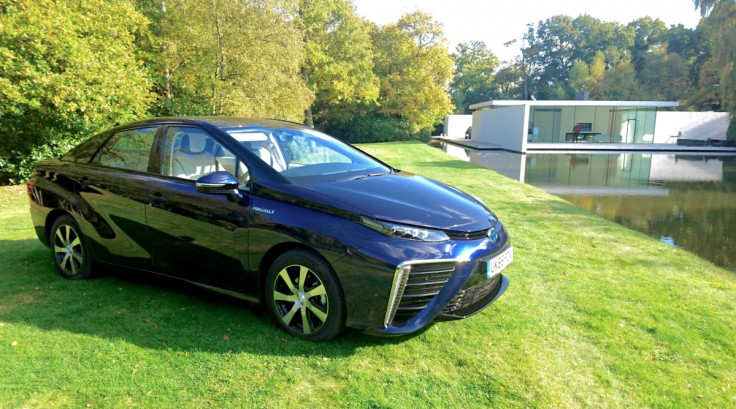Hydrogen fuel cell cars are 'a complete nonsense' says Jaguar engineering director
'Disastrous' well-to-wheel efficiency blamed for hydrogen fuel cell cars not taking off.

Hydrogen fuel cell cars don't make sense and are "a complete nonsense", claims Wolfgang Ziebart, the technical design director at Jaguar Land Rover.
Speaking to a group of journalists, including IBTimes UK, at the Los Angeles Auto Show, Ziebart dismissed the technology because of a "disastrous" well-to-wheel ratio – that is, the efficiency of taking energy from its source and using it to power a car.
He claimed the well-to-wheel efficiency of hydrogen fuel cell cars to be just 30%, due to energy lost during the distribution and deployment of hydrogen cells. By contrast, Ziebart said fully electric cars have an efficiency closer to 70%.
His comments come a day after Jaguar revealed the I-Pace Concept, the company's first ever electric car, which will go on sale in 2018.
When asked where Jaguar stands on hydrogen fuel cell power, as promoted by Toyota but dismissed by others, Ziebart said: "Hydrogen doesn't make sense. It is a complete nonsense. The well-to-wheel relationship is a disaster in hydrogen." He went on to say that hydrogen cars currently on sale, such as the £66,000 Toyota Mirai, are not really hydrogen powered, because they use the fuel cell to create electricity, which then drives the car.
The infrastructure for hydrogen is also a concern for Ziebart, as currently there are only three hydrogen fuelling stations in the UK. "Efficiency is the most important argument. A lack of cell development can be overcome, and if there was a strong reason to have the infrastructure then I think it would be set up. But with disastrous well-to-wheel it doesn't make sense."
Ziebart's criticism comes soon after reports claimed Toyota is preparing to mass-produce electric vehicles by 2020, following disappointing sales of its hydrogen cars. Toyota has believed that electric vehicles would not catch on because of high battery cost and limited driving range, as well as lengthy recharge times compared to hydrogen refuelling.
But the electric car infrastructure has grown more quickly than hydrogen, as manufacturers opt to embrace electric. While Tesla dominates the market for now, Volkswagen intends for electric vehicles to make up 25% off its sales by 2025, up from 1% now.
© Copyright IBTimes 2025. All rights reserved.






















